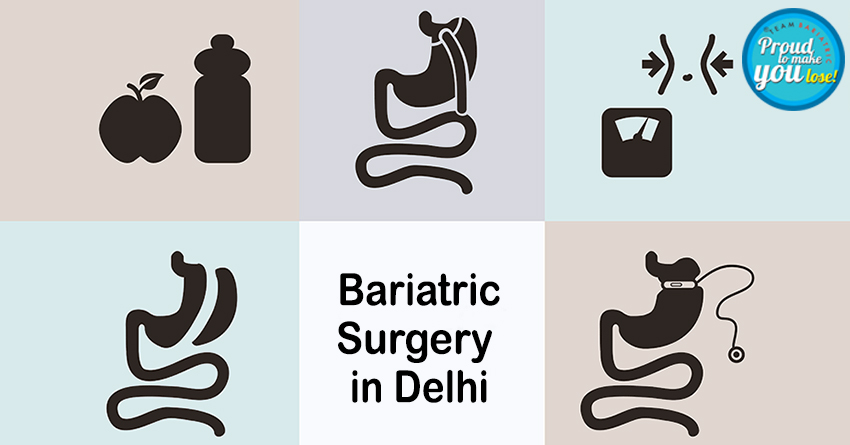
There is a dramatic increase in prevalence of obesity. The traditional approaches like dietary and lifestyle modification, physical activity and pharmacotherapy fail to facilitate weight loss and treats obesity. So, bariatric surgery is the most sustainable treatment option. Bariatric surgery also promises improvement in obesity related comorbidities like type 2 diabetes, hypertension, dyslipidemia, arthritis etc. so, the term bariatric surgery is now replaced with bariatric and metabolic surgery. These days metabolic surgery for diabetes has emerged as a proven tool for resolution or control of type 2 diabetes. This weight loss treatment in Delhi is being done only at specialized centers, by adequately trained and expert surgeons. Thus it gives a permanent cure to this traditionally regarded as a progressive, unrelenting disease called type 2 diabetes.
In last few years there has been an increase in weight loss treatment in Delhi. Many centers are currently performing bariatric surgery. Patients from every corner of India prefer to come to Delhi for bariatric surgery owing to the availability of best medical facilities, trained and experienced bariatric surgeons and specialized paramedic staff. Even International patients prefer Delhi, India for bariatric surgery.
Sleeve gastrectomy and roux-en-Y gastric bypass are the most commonly performed weight loss procedures. Metabolic surgery for type 2 diabetes targets patients with uncontrolled diabetes who are currently on oral drugs and insulin. Scientific literature reports that bariatric and metabolic surgery results in weight loss, improvement/ normalization of blood sugar levels, reduction/ withdrawal of diabetes medications and decrease in cardiovascular disease risk factors. It is a simple procedure and the patients may be able to leave the hospital in one day or even the same day in selected cases.
In patients with reflux disease and type 2 diabetes the results of sleeve gastrectomy may be inferior to the roux-en-Y gastric bypass but the excess weight loss of both the procedures may be comparable in a select subgroup of patients.
Nutritional deficiencies are present in obese patients as consumption of high energy diet compromises on protein, vitamin and mineral intake. As Sleeve gastrectomy and roux-en-Y gastric bypass involves removal or bypassing of some parts of stomach and /or small intestine, so, macronutrient (protein) and micronutrient deficiencies (calcium, iron, B12, vitamin D, folate etc.) are very likely to occur post- operatively in the patients. Nutritional assessment remains the key component pre-operatively and post-operatively to identify, prevent and treat nutritional deficiencies at an early stage. Nutritional assessment involves taking physical measurements of body (height, weight etc.), analyzing blood and urine samples, identifying deficiency signs and symptoms and performing a comprehensive dietary assessment.
Consuming a well- balanced energy restricted diet with vitamin and mineral supplements and timely follow up with the bariatric team promises success of the surgery.





